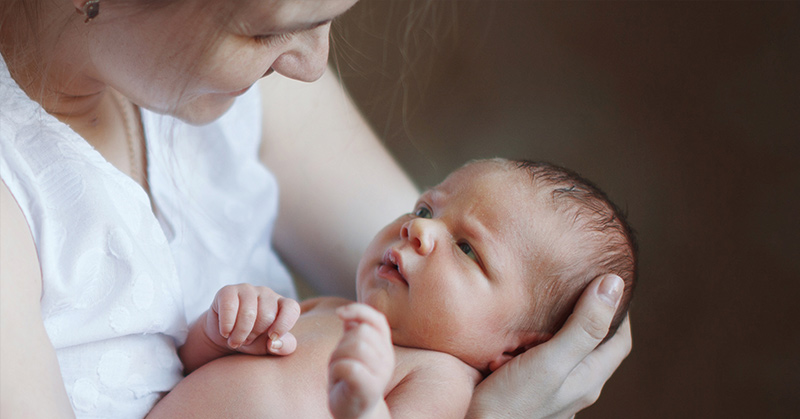For years, people worried that speaking to babies in more than one language would cause confusion and a delay in language development. Now we know that couldn’t be further from the truth: babies raised in two (or more!) languages have a higher rate of cognitive development. Essentially, bilingual babies are smarter.
Babies can be bilingual?
Now we know you are probably thinking “How on earth can a baby be bilingual?”. After all, babies can’t speak, and does multilingualism not imply the ability to speak more than one language?
Normally, yes. However, for an infant, bilingualism is more about the way they respond to being spoken to in multiple languages and how their brain develops from there. The actual ability to speak those languages of course, comes later. (1, 2, 3, 4, 5)
What makes bilingual babies smarter?
Okay, so the bilingual brains are not actually “smarter brains” per-se, however, they have proven to be more flexible and resourceful. (2) What we know is that in the first 6 months of life, babies born to monolingual families are able to differentiate between two languages and that those sounds are different, while bilingual babies can’t. After about 10 to 12 months however, those babies stop detecting sounds in “foreign” languages. The bilingual babies at 10 to 12 months, however, were able to distinguish sounds in both languages. (3, 5)
Bilingual babies also have shown to have improved cognitive development, reading comprehension, and language mastery in both languages. (1, 2, 3, 4, 5)
The learning starts before birth
A developing fetus still in its mother’s womb can hear different sounds from the world outside. Those rhythms, including those from different languages, have a big impact on the growing baby’s brain – languages included. (2, 3)
Face-to-face interaction is key
Much of the language learning happens between a mother and her baby, because the mother’s voice is a source of comfort and familiarity for the child. (2, 3, 5) What research has shown, is that language learning by babies just listening to and watching television programs in other languages doesn’t cause the same stimulation that in-person interaction does. Babies learn languages by being spoken to and watching your lips and facial muscles move, therefore in order to effectively grow into a bilingual child, they must regularly be spoken to in both languages. (3)
It’s never too early, but also never too late
When it comes to mastering a second (or third, or fourth…) language, the earlier is better. Babies learn languages differently than children and especially adults who have already assigned meaning to sounds in their mother tongue. If you are not bilingual or did not speak to your child in your second language from infancy, you can both still benefit from second language learning. Even adults who learn second languages have shown to have delayed the onset of dementia symptoms later in life. (1)
Tips for raising a bilingual child
Naturally, if you do speak a second language, be sure to speak to your child in that language. The more exposure they have, the better.
- If you speak another language and your spouse does not (or vice versa) have one parent speak to them in English and the other parent in the other language.
- If both parents speak the same second language, pick one parent to use English and the other to use the second language.
- If both parents have different second languages, speak to them in both second languages as well as English.
Of course, if neither you or your partner are bilingual, don’t panic! There are plenty of other ways you can expose your child to a second language:
- Send your child to a second language preschool or a bilingual school.
- When you require a baby-sitter or care-taker, consider hiring one who speaks a second language and have them teach your children.
- If a bilingual preschool or primary school is not a possibility, consider taking your children to a second language night school, similar to after-school piano lessons. You may even be able to enroll in one with your kids, and you can learn the language together!
- Buy your child interactive books and games in other languages. The earlier you can get them playing, reading, and interacting with other languages the better.
More languages mean more fun!
There are no downsides to raising bilingual children. They can travel more easily, are more marketable to future employers, and have a better outlook for the future health of their brains. On top of all of those things, learning another language later on in life will be easier for them.
So moral of the story? Whether you are bilingual or not – do your child a favor, and help them to be. They will say thank you (or merci, gracias, or danke…) later!
- https://www.ncbi.nlm.nih.gov/pmc/articles/PMC3322418/
- https://emba.villanova.edu/content/villanova/artsci/romancelanglit/greetings/_jcr_content/pagecontent/download/file.res/The%20power%20of%20the%20bilingual%20brain%20-%20Times%20article.pdf
- https://www.jewishedproject.org/sites/default/files/2017-04/Hearing%20Bilingual%20-%20How%20Babies%20Sort%20Out%20Language%20by%20Perri%20Klas.pdf
- https://onlinelibrary.wiley.com/doi/abs/10.1111/j.1751-228X.2009.01069.x
- https://www.sciencedirect.com/science/article/abs/pii/S0093934X11001027

